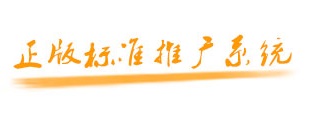BSI发布城市可持续发展标准
英国标准协会(BSI)发布了ISO 37101-2016城市可持续发展--可持续发展的管理体系--要求及使用指南。
在快速变化的世界中,确保城市和社区符合未来发展是许多城市领导人的重要优先事项。 提供可持续能源供应,应对环境和气候变化,建设和维持持久的基础设施以及满足公民的需求和期望是城市领导人需要考虑的问题。 ISO 37101已经制定,以帮助城市领导者制定其城市可持续发展规划。
英国方早在2011年就发布了类似指南,8904-2011 社区可持续发展指南。该指南适用于基层组织发展;与此同时,该指南也为ISO 37101标准的制定做出了贡献。
借助智能化和高适应能力在内的各类方法和工具,国际标准明确了发展要求,提供了发展指导,从而实现可持续发展目标。该国际标准可帮助城市社区在以下各方面得到提升:
- 培养相互协调、综合考量的工作方式,摒弃孤立片面的工作方法(这种工作方式阻碍可持续发展)
- 通过社区每一份子的共同合作和努力,促进社会和环境变革
- 提升市民身体素质和幸福感,鼓励资源负责任使用
- 实现社区良好治理,支持高性价比投资决策
BSI市场可持续发展主管David Fatscher说:“随着社会的发展和社区内的人口密度的增加,必须对这些社区的可持续发展进行更多的思考。 这不仅涉及人口规模,而且涉及社区面临的经济,社会和环境问题。 虽然以前的指南使个人能够在当地控制他们的社区,从改善社会和经济机会到保护地方环境,这一国际标准采取了更广泛的观点。城市领导者能够在任何影响社区的决定中处于最前沿,并得到所需的指导来实现改变,通过多种形式惠及环境。”
其他参与ISO 37101标准制定的国家还包括:奥地利、加拿大、中国、丹麦、法国、德国、日本、墨西哥、荷兰、俄罗斯、瑞典、斯里兰卡和美国。与此同时,全球城市指标设施和联合国环境规划署建立了外展与联络服务,包括国际标准化组织关于城市指标和智能基础设施的标准统一工作。
ISO 37101将有助于城市CEO,可持续发展官员,智慧城市管理者和法律法规管理机构,政策顾问,非政府组织和顾问为其城市长期的可持续发展做出规划。
Sustainable-development-of-communities'-standard-published
BSI, the business standards company, has published ISO 37101:2016,Sustainable development in communities — Management system for sustainable development — Requirements with guidance for use.
In a fast-changing world, ensuring cities and communities are fit for the future is a key priority for many city leaders. Providing sustainable energy supplies, coping with environmental and climate changes, building and maintaining durable infrastructures and meeting the needs and expectations of citizens are just some of the considerations to be made. ISO 37101 has been developed to help city leaders set their city's sustainable development agenda.
The UK has already developed similar guidance in the shape of BS 8904:2011Guidance for community sustainable development which is suited to local grass roots organizations, with this standard contributing towards the development of ISO 37101.
The international standard sets out requirements and guidance to attain sustainability with the support of methods and tools including smartness and resilience. It can help communities improve in a number of areas such as:
- Developing holistic and integrated approaches instead of working in silos (which can hinder sustainability)
- Fostering social and environmental changes through collaboration of all stakeholders in a community
- Improving health and wellbeing for citizens encouraging responsible resource use
- Achieving better governance to support cost effective investment decision
David Fatscher, Head of Market Development for Sustainability at BSI, said: “As societies grow and populations within a community increase in density, more thought has to be put into the sustainable development of those communities. This is not just about population size but also the economic, social and environmental issues that a community faces. Whilst previous guidance has enabled individuals to take control of their communities locally, from improving social and economic opportunities to protecting the local environment, this international standard takes a broader view. City leaders can be at the forefront of any decisions that impact their communities and now have the guidance they need to implement changes to benefit their environment in multiple ways.”
Some of the countries involved in the development of ISO 37101 include: Austria, Canada, China, Denmark, France, Germany, Japan, Mexico, Netherlands, Russia, Sweden, Sri Lanka and USA. Outreach and liaison was also established with the Global City Indicators Facility and the United Nations Environment Programme. This included harmonizing work being done in ISO on city indicators and smart infrastructure.
ISO 37101 will be able to help city CEOs, sustainability officers, smart city managers and compliance managers, policy advisors, NGOs and consultants plan their city’s long term sustainability agenda.
版权所有 侵权必究
- 主管:国家标准化管理委员会
- 主办:国家标准化管理委员会标准信息中心
- 运营:北京中标赛宇科技有限公司
- 经营许可证编号 京ICP证 号
- 盗版侵权 举报热线:400-650-6190
网站地图
- 国家标准化管理委员会
友情链接
- 中国科技资源网
关于我们
- 技术团队
- 合作伙伴
- 法律声明
- 知识产权





